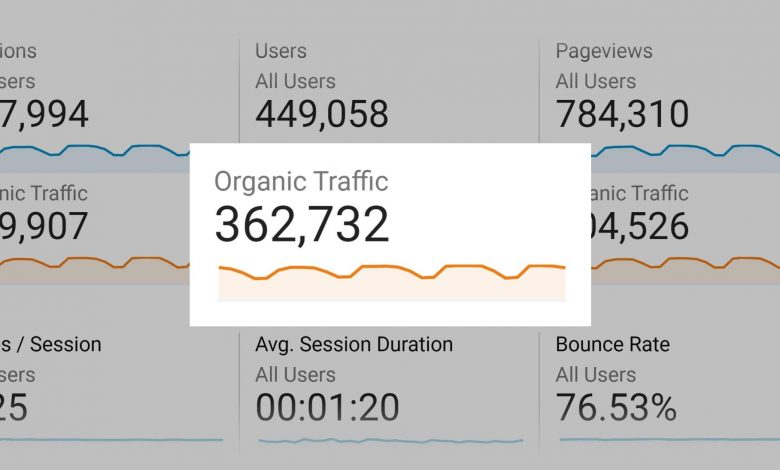Essential Steps for Implementing an Effective SEO Strategy

Essential Steps for Implementing an Effective SEO Strategy
Introduction
In today’s digital landscape, ensuring that your website is visible to search engines and potential customers is crucial. This is where Search Engine Optimization (SEO) comes into play. By implementing an effective SEO strategy, you can improve your website’s visibility, increase organic traffic, and ultimately, drive more conversions. In this blog post, we will discuss the essential steps you need to take to implement a successful SEO strategy.
Step 1: Conduct Keyword Research
What is keyword research?
Keyword research involves identifying the target keywords and phrases that your audience is using to search for products or services similar to yours. It helps in understanding user intent and optimizing your website accordingly.
How to perform keyword research?
– Start by brainstorming a list of relevant keywords.
– Use keyword research tools like Google Keyword Planner, SEMrush, or Ahrefs to find more keyword ideas and analyze their search volume and competition.
– Focus on long-tail keywords (phrases containing three or more words) as they tend to have less competition and higher conversion potential.
Step 2: Optimize On-Page Elements
What are on-page elements?
On-page elements are the components of your web page that can be optimized for better search engine rankings. These include title tags, meta descriptions, headings, URL structure, and content.
How to optimize on-page elements?
– Craft unique and descriptive title tags and meta descriptions that include your target keywords.
– Use heading tags (H1, H2, H3) to structure your content and improve readability.
– Optimize your URL structure by including relevant keywords.
– Create high-quality and relevant content that provides value to your audience.
Step 3: Build High-Quality Backlinks
What are backlinks?
Backlinks are incoming links from other websites to your own. They are considered as “votes of confidence” and are an important ranking factor in search engine algorithms.
How to build high-quality backlinks?
– Create valuable and shareable content that other websites would want to link to.
– Reach out to industry influencers, bloggers, and publications to promote your content.
– Participate in guest blogging opportunities to secure backlinks from authoritative websites.
– Monitor your website’s backlink profile using tools like Moz or Majestic to identify and disavow any toxic backlinks.
Step 4: Optimize for Mobile and User Experience
Why is mobile optimization important?
In today’s mobile-first world, having a mobile-friendly website is crucial for both user experience and search engine rankings. Google considers mobile-friendliness as a ranking factor.
How to optimize for mobile and user experience?
– Ensure that your website is responsive and adapts to different screen sizes.
– Optimize your website’s loading speed by compressing images, minimizing code, and leveraging caching techniques.
– Provide a seamless user experience by making your site easy to navigate, with clear calls to action.
Conclusion
Implementing an effective SEO strategy is essential for improving your website’s visibility and attracting valuable organic traffic. By following the steps outlined in this blog post – conducting keyword research, optimizing on-page elements, building high-quality backlinks, and optimizing for mobile and user experience – you can lay a strong foundation for SEO success.
Remember, SEO is an ongoing process, and it requires continuous monitoring, analysis, and optimization to stay competitive in the ever-changing digital landscape.
How long does it take to see results from SEO?
SEO is a long-term strategy, and it may take several months to see significant results. However, by consistently implementing best practices and providing valuable content, you can start to see improvements in your website’s rankings and organic traffic over time.
Should I focus on optimizing for Google only?
While Google is the dominant search engine, it’s important not to neglect optimization for other search engines like Bing and Yahoo. Different search engines have different algorithms and user bases, and by optimizing your website for multiple search engines, you can maximize your reach and visibility.
Can I do SEO myself, or should I hire a professional?
You can certainly implement basic SEO practices on your own, especially if you have a small website. However, for more advanced strategies and technical optimizations, it’s advisable to hire a professional SEO agency or consultant who has the expertise and resources to help you achieve better results.
Is SEO a one-time activity?
No, SEO is an ongoing activity. Search engine algorithms are constantly changing, and new competitors and trends are emerging regularly. To maintain and improve your SEO rankings, you need to continuously monitor and optimize your website’s performance, content, and backlink profile.
By following the essential steps outlined in this blog post and staying up-to-date with SEO best practices, you can set your website on the path to long-term success. Remember, while SEO may take time and effort, the rewards in terms of increased visibility, organic traffic, and ultimately, conversions, are well worth it.



